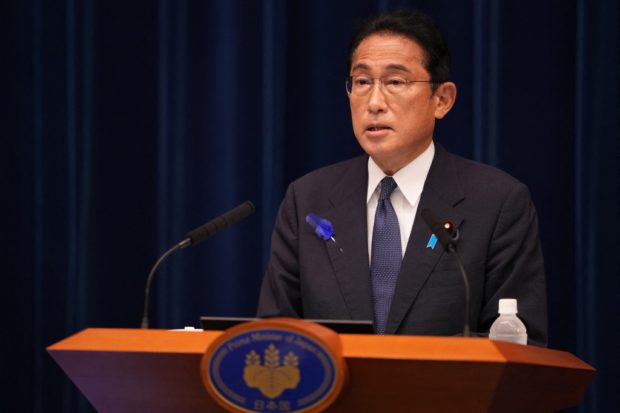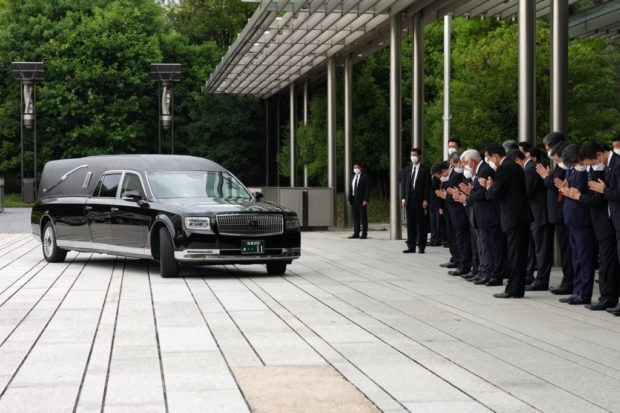Japan to hold state funeral for ex-PM Shinzo Abe this year

Japan’s Prime Minister Fumio Kishida speaks during a press conference in Tokyo on July 14, 2022. (Photo by Zhang Xiaoyu / POOL / AFP)
Tokyo, Japan — Japan will hold a state funeral for assassinated former premier Shinzo Abe this autumn, Prime Minister Fumio Kishida said Thursday, following an outpouring of shocked condolences from world leaders.
Abe, Japan’s best-known politician and longest-serving prime minister, was shot dead in broad daylight while campaigning on Friday ahead of upper house elections.
A private funeral was held for family and close associates this week at a Tokyo temple, but a state funeral will also take place to show that “Japan will not give in to violence and is determined to protect democracy,” Kishida said.
Abe “was held in very high esteem by the international community, including foreign leaders,” he told reporters, and “mourning messages have poured in from home and abroad.”
“In light of this, we will hold a state funeral for former prime minister Abe in the autumn.”
Article continues after this advertisementThe 67-year-old Abe held office for nearly nine years in total until resigning in 2020 for health reasons.
Article continues after this advertisementHis long time in power, support of reconstruction after the 2011 tsunami and nuclear disaster, and “efforts towards diplomacy led by strong Japan-US relations” will be honored at the event, Kishida said.

A hearse transporting the body of Japan’s former prime minister Shinzo Abe makes a brief visit to the Prime Minister’s Office after the funeral ceremony, as Japan’s Prime Minister Fumio Kishida, officials and employees offer prayers in Tokyo on July 12, 2022. (Photo by Eugene Hoshiko / POOL / AFP)
According to local media, it will be the second state funeral held in post-war Japan for a former prime minister, following the public memorial for Shigeru Yoshida in 1967.
The murder suspect, 41-year-old Tetsuya Yamagami, is in custody and has told police he targeted Abe because he believed the politician was linked to an organisation he resented.
Yamagami reportedly told investigators that his mother’s large donations to the group had caused hardship to his family.
The Unification Church, a religious movement founded in Korea, has said that Yamagami’s mother was a member, without commenting on any donations she may have made.
On Thursday, Kishida also advised vigilance as Covid-19 cases rise in Japan, but did not announce any fresh restrictions.
He said he had instructed up to nine nuclear plants to resume operations to help counter energy shortages this winter, fuelled by the war in Ukraine.
But such a move remains controversial after the 2011 Fukushima disaster, and the government cannot force the facilities to restart. Kishida pledged Thursday that authorities would put “safety first” and “listen to local residents.”